The crowds seen buzzing last week outside the Bridgestone Arena in Nashville, Tennessee, a regular host to the NCAA basketball tournament and a hometown venue for country music acts, were coming not to take in a game or a concert, but to sing, write and bond over Christian hymns.
The annual Sing! Global conference, held Sept. 4-6, drew some 8,500 Christian worship music leaders and other church musicians, pastors, vendors and hymn composers from as many as 35 countries. (An estimated 80,000 others in 120 countries participate online.) They attend breakout sessions on congregational singing, songwriting and children’s and family ministry. Others address themes such as “Hymns in Hard Places,” evangelism and singing at home. They listen to speakers, live recording sessions and late-night performances.
Most of all they come to sing together — tunes from historic hymnals, from Celtic traditions and new creations — and to share a common love and culture of sacred music.
“I like seeing all different denominations represented, kind of breaking down the walls and seeing the church at large,” said Amy Bauman, from Appleton, Wisconsin. Over the hum of strangers getting acquainted in the lunch line, Bauman said she and her fellow singers had come to be reenergized and have their “flames reignited.”
But there is another story about a battle for American hymnody that has been on display since the Sing! Global conference was founded in 2017 by Keith and Kristyn Getty, a husband-and-wife hymn writing team.
Your tax-deductible gift helps our journalists report the truth and hold Christian leaders and organizations accountable. Give a gift of $30 or more to The Roys Report this month, and you will receive a copy of “Baptistland: A Memoir of Abuse, Betrayal, and Transformation” by Christa Brown. To donate, haga clic aquí.
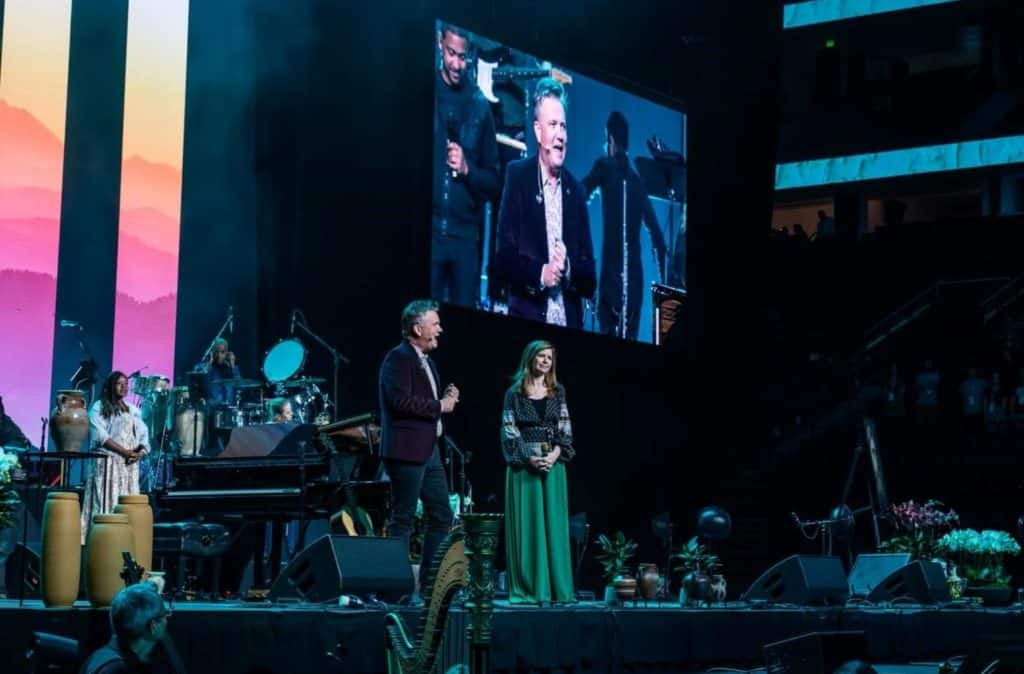
For more than a decade, American worship services have started to leave traditional hymns behind. Instead of historic chestnuts such as “Be Thou My Vision,” whose words date to the sixth century with music from the early 1900s, or “Love Divine, All Loves Excelling,” adapted in the mid-1700s by the Methodist Charles Wesley from a popular opera number of the time, the most popular church music now originates in bands associated with megachurches such as the Bethel Church network in California, Elevation Church in North Carolina, Atlanta’s Passion City Church (“How Great Is Our God”) and the global megachurch Hillsong (“Oceans”).
Una recent study found that of the 38 most played songs, 22 were released by one of the four most prominent megachurches. An additional eight songs were released by artists with ties to those churches, and six more were collaborations with megachurch artists or cover songs.
Those who gather in Nashville are in part a bulwark against the takeover by megachurch music, known as “praise and worship” songs. Such hymns are palatably positive, easy for a large crowd to sing along to and focus on a personal, emotional closeness to God. But these features, critics say, come with a theological vagueness and a musical blandness.
“Unfortunately some of the modern music of contemporary Christian music has become almost secularized, or has become popular tunes, but pretty shallow gospel,” said Mark Hosny, assistant professor of music and worship arts at Trevecca Nazarene University. “As believers, there is nothing wrong with upbeat songs. We’ve just got to be sure that what drives that narrative is talking about the gospel of Jesus Christ,” said Hosny.
The Gettys answer this call, according to people who attended their conference.
“I think what sets these types of hymns apart from some of the current trends is that there are very specific, concrete things being said. It is not vague, it is not general,” said Cliff Johnson, a pastor from Hope, Arkansas, who attended the conference last week. “There is a very concrete truth being proclaimed, understood, and felt that you can build your life upon.”
Despite Sing! Global’s popularity, Hosny said he doesn’t expect churches to swing all the way back to the traditional hymnody. But he takes it as a sign of a desire in congregations for a “deeper and richer” theology than what they have been getting.
Highlight of the week. Thank you @AndrewPeterson y @christomlin #Sing23 @gettymusic pic.twitter.com/6rHZGIQDjw
— Donald Adams (@DonnyAdams14) September 6, 2023
Adam Perez, assistant professor of worship studies at Belmont University in Nashville, pointed out that the Gettys, with roots in the evangelical Reformed tradition, tend to write and record hymns that explicitly outline doctrinal truths. They provide a sense of theological and missional certainty to listeners, appealing to the desire for certainty in a complex world.
The Gettys are “actually in between the hymn people and the modern worship people,” said Perez. “They’re actually in the middle.”
And they are hardly the only ones to try to preserve the historic hymn tradition. Perez adds that traditional hymns don’t have to come with traditional theology.
Perez recently completed a term on the board for the Hymn Society, founded in 1922, whose own conference is aimed at the people producing, writing and editing hymnals and songs for Presbyterians, Evangelical Lutherans, Episcopalians, Roman Catholics and United Methodists. “The hymns there are much more theologically liberal, much more open to ambiguous poetic devices,” he said.
Some have criticized how past Sing! Global conferences have platformed controversial figures. Last year, California pastor John MacArthur habló at Sing, despite critics questioning his inclusion and overwhelming evidence that MacArthur covered up sex crimes at Grace Community Church where he ministers. Years prior, in fall 2018, disgraced itinerant minister and apologist Ravi Zacharias habló to Sing attendees despite alleged improper conduct that had been reported.
At Sing! Global, some attendees were less concerned with worship music battles than with the important role that songs of faith have in handing Christianity down by providing a link to the witness of past generations.
“My grandmother was the one that always sang hymns, then my mom sang hymns, so for me it is a connecting, intergenerational faith that shows through hymns, specifically,” said one children’s music director from a Florida church. “I don’t really remember my grandmother necessarily sitting down and saying, ‘Hey, this is Jesus, let me tell you about him,’ but she sang ‘I’ll Fly Away’ while sweeping every day.”
Josh Shepherd contribuyó a este informe.
Grace Beckner is a contributor to Religion News Service.





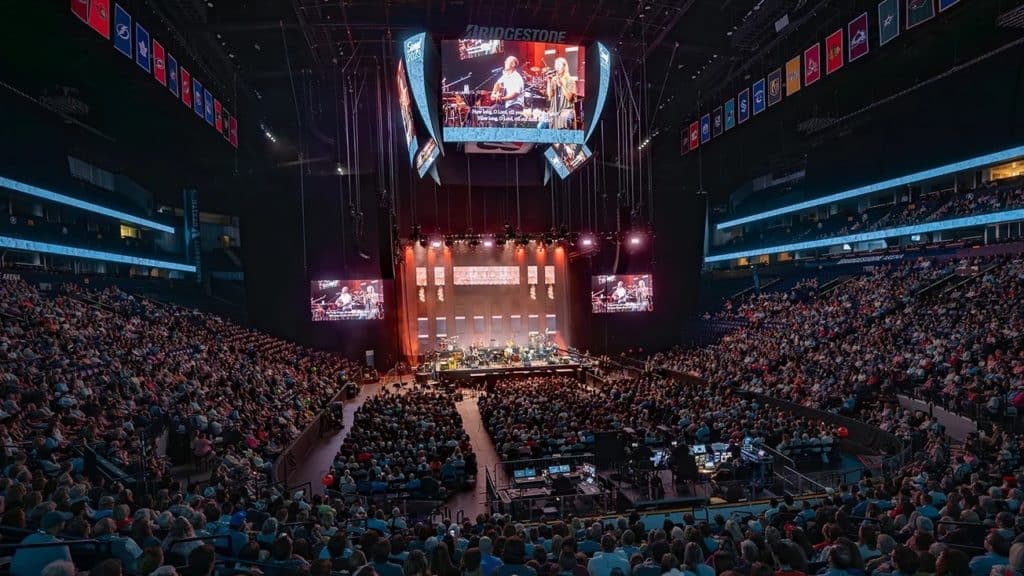
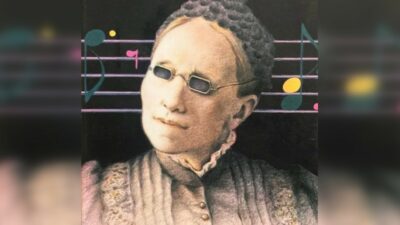
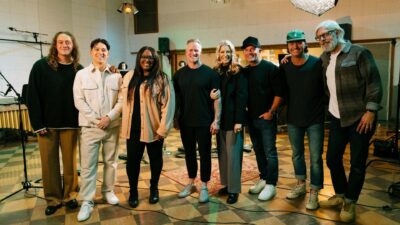
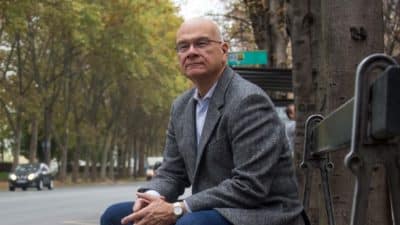
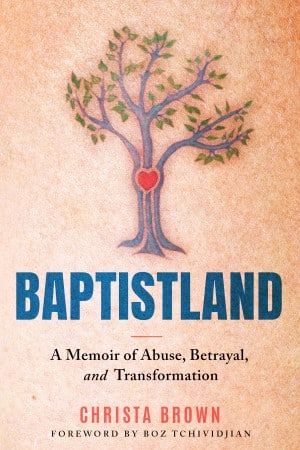
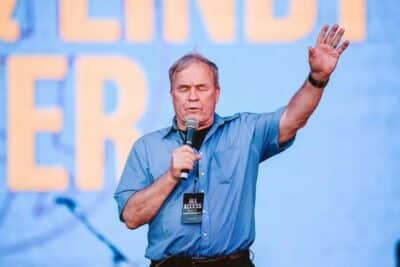

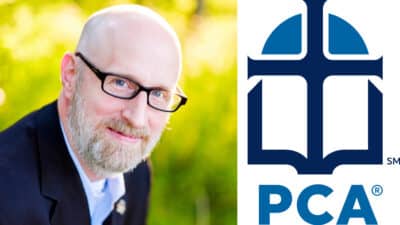
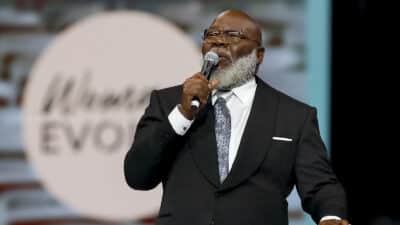







9 Respuestas
I really like this post. Thank you.
I went to Sing Website and nowhere on there do they mention any kind of pushback or hard stance against the mega churches. I love hymns and praise songs and. it sure trying to start an argument helps anyone.
I appreciate this; I was just in Nashville and only wish I had known this conference was happening.
As someone who also grew up with my grandma (and great-grandma) singing hymns as they cleaned the house – and was a teenager when the likes of Kirk Franklin exploded onto the scene – I don’t think the church has to take an either/or stance. There is beauty in, and room for, both traditional and contemporary styles of music. While everyone is entitled to their preference, the last thing we need is right fighting over types music that seek to achieve the same objective – to praise the Lord.
Thankfully the Holy Spirit allows a wide variety of worship expressions because God has wired us with so many personal preferences & endless situational dynamics… there is a time for solemn worship & a time for boisterous high praise (HALLELUYAH!) & for everything in between… His word gives permission to worship & express our love for Him is so many different ways… It’s beautiful & rich…
speaking to one another with psalms, hymns, and songs from the Spirit. Sing and make music from your heart to the Lord…
I think the Gaither’s have been another amazing example of creative, rich music as well over the years… The number of songs the Gaither’s have written, the people they have encouraged & supported is phenomenal… They have been doing “homecoming” gatherings & concerts for decades…
I appreciate the comments by Adam Perez. The average TRR reader may not appreciate the extent to which theological vagueness has been a scourge to the hymns found in those mainline or reappraising (of gospel imperatives) denominations. The Episcopal Church released a hymnal in 1982 which is filled with slight alterations that change or obscure the previously clear, biblically and theologically correct texts. Compare those words with the originals, and the repeated patterns are easy to see. Themes of God’s just judgment were curtailed, and biblical language for human beings was excised; the artwork of previous generations bowdlerized or tattoed by nameless committees. I used to cringe when I’d glance down at the bottom of the page in the hymnal, and see after the lyricist’s name the dreaded “, alt.” Then I began to later look up online the original wording for them, and that was a lesson in discernment.
At the church I attend, each Sunday is a mix of on-screen “contemporary” songs and a hymn or two from the hymnal and a real pipe organ. Some of each are answered glad or sad. In my adult SS class, with an Assoc. Pastor leadership, it has been said that nearly every Sunday there is a Biblical error in the words on the screen.
Thank you for this uplifting story. We sing many hymns written by the Gettys and their amazing associates in my church. They are so rich in doctrine and depth. I was blessed to be able to attend the Sing 2021 conference. Originally registered for 2020 but alas! the year that will go down in infamy. Instead of attending the streaming option, I opted to transfer my registration to 2021 and so glad I did. I can’t begin to tell you how wonderful the congregational singing was. Imagine thousands of voices, mostly worship leaders and choir members like myself. It was my favorite part.
I too have had my reservations about some of the guests invited to speak at the Sing conferences but as a whole, the experience was unforgettable. And despite what some invited speakers may think is allowable, there were women there who … wait for it … read scripture aloud to all the attendees and did so inspiringly.
There’s something disingeunuous and, some would say, even iniquitous about these relentless digs at anything Christian that does not conform to the “Reformed tradition” (i.e the doctrines laid out by a MAN, John Calvin of Geneva, 1500 years after Christ).
They are not based on facts either.
The accusation re: “musical blandness” and “theological vagueness” is FALSE.
ANY musician will tell you that Hillsong’s music is full of variety and complexity i.e the opposite of bland. And I see their lyrics as far more theologically on point than Calvinism.
Moreover, the link in the eighth paragraph is to a SUBJECTIVE and arguably discriminatory article by a Calvinist.
Anyone would think there is a concerted effort by Calvinist “mafia” to discredit anyone who doesn’t religiously follow their traditions of man.
Who does that remind you of?
Yep, the Pharisees, the sect which preferred tradition and spent all their time falsely accusing and trying to discredit Jesus and his disciples…
A while back, a guy complained that the songs at our church were to “me focused.”
“How many times do you say, ‘I’ or ‘me’ in one of our worship services?” he asked. “What about ‘A Mighty Fortress Is Our God…”
I asked him to skim the ONE song book the church and nation of Israel ever considered Holy Writ — the book of Psalms — in preparation for a follow up discussion. He’s never gotten back with me.
Point is, there’s room for theologically dense hymns. But we can and should get lots of theology other places in the church, e.g. the sermon, Bible studies, classes, scripture readings. But aside from times of shared musical worship, we rarely have opportunities to join brothers and sisters in simple, heartfelt songs of devotion, many of which have been unfairly slandered by ancient curmudgeons and young, reformed edgelords alike.